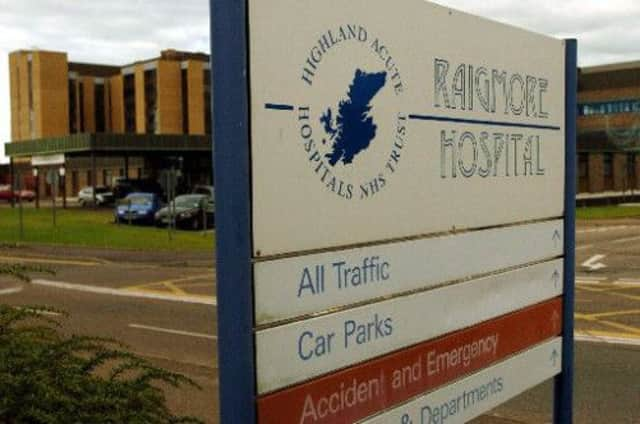Four Scots hospitals closed due to vomiting cases


Lawson Memorial Hospital in Golspie was closed this morning (Mon) and currently has ten patients affected.
The County Community Hospital in Invergordon was closed on Saturday with eight patients affected.
Advertisement
Hide AdAdvertisement
Hide AdA Surgical Ward (3C) in Raigmore Hospital, Inverness and the inpatient ward in Nairn Town and County Hospital remain closed.
There are currently four patients in Ward 3C affected, 13 patients are affected in Nairn. A number of staff are also affected, and they are recovering at home.
Initial testing done on Invergordon has indicated that the symptoms are caused by norovirus. We are still awaiting test results for Lawson Memorial. Testing has already confirmed norovirus in both Raigmore and Nairn.
The virus, which causes diarrhoea, nausea and vomiting, spreads in the air where someone has had diarrhoea or vomited and is extremely difficult to contain.
Dr Adam Brown, Consultant Microbiologist for NHS Highland, said: “We know that norovirus is out there in the community and it is likely it has been brought into our hospitals.
“As well as restricting visiting to the affected wards we are also asking people not to come to the hospitals to visit if they have had any vomiting or diarrhoea within the previous 48hrs. By doing this we will be able to limit the spread as much as possible.
“Hospital staff will of course be very happy to talk to visitors on the phone so they can get updates on how their relatives are.”
There is no specific treatment for a norovirus infection and it is not usually necessary to visit a doctor.
Advertisement
Hide AdAdvertisement
Hide AdThe best course of action is to stay at home, take paracetamol to relieve symptoms of any fever and to drink plenty of water to prevent dehydration. People should also adhere to strict hand washing techniques to reduce the spread of the virus.
The public can help to minimise the spread by following some simple rules:
• Do not visit a hospital if you or someone you live with has symptoms. If you have a hospital appointment, please get in touch and, where appropriate, your appointment can be rescheduled.
• Wait until you have been clear of symptoms for 48 hours, as you may still be contagious, even if you feel well.
• Wash your hands regularly with soap and water, especially after using the toilet and before eating.
• If you visit someone in hospital, don’t sit on their bed and keep the number of visitors to a minimum at any one time. Never touch dressings, drips, or other equipment around the bed.